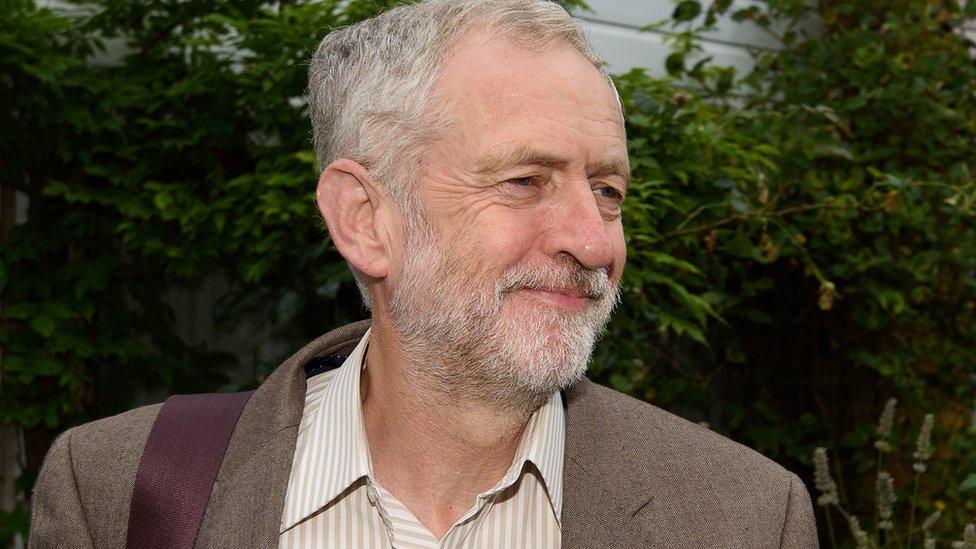Alistair Darling: I don't know what Jeremy Corbyn stands for
- Published
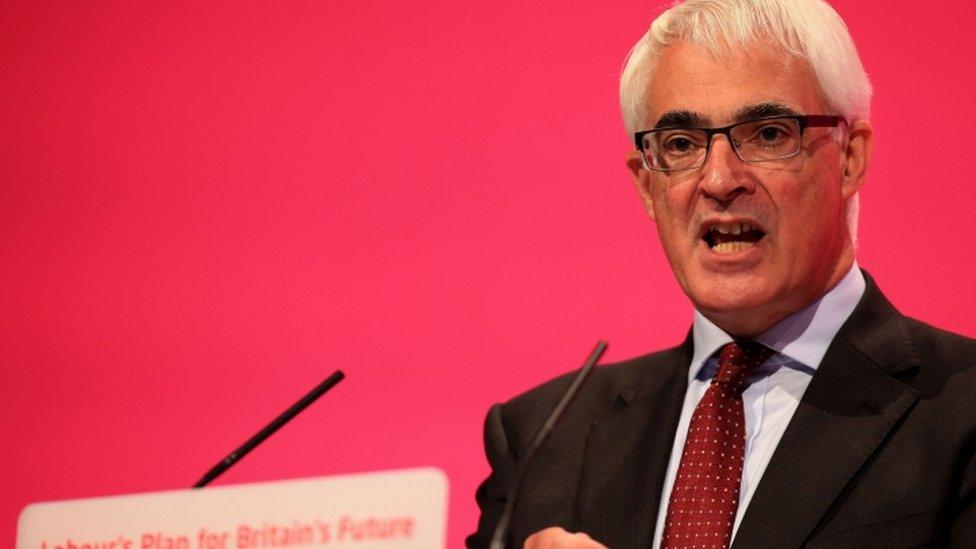
Former Labour chancellor Alistair Darling has said he is struggling to "see a silver lining" in Jeremy Corbyn's election as Labour leader.
Mr Corbyn would find it hard to "get off the ground" unless he set out very clearly where he stood on key issues.
"So far this week I do not know where he is going, what he stands for," he told Radio 4's Today.
Asked whether he could see shadow chancellor John McDonnell in the Treasury, he said it was "difficult".
The Labour leader has had a difficult first week in the job, being criticised for the lack of women in the most senior shadow cabinet positions, his decision not to sing the national anthem at a Battle of Britain service and confusion over his stance on the EU referendum.
Mr Darling acknowledged that Mr Corbyn - who was elected with nearly 60% of the vote last Saturday - had a "huge mandate".
'First impressions'
He said Mr Corbyn had benefited from and "capitalised on" the public mistrust of the political establishment and their yearning for something new.
However, he said "first impressions" of a new leader were decisive and although Mr Corbyn had made it clear "what he is against, I am not sure what he is for".
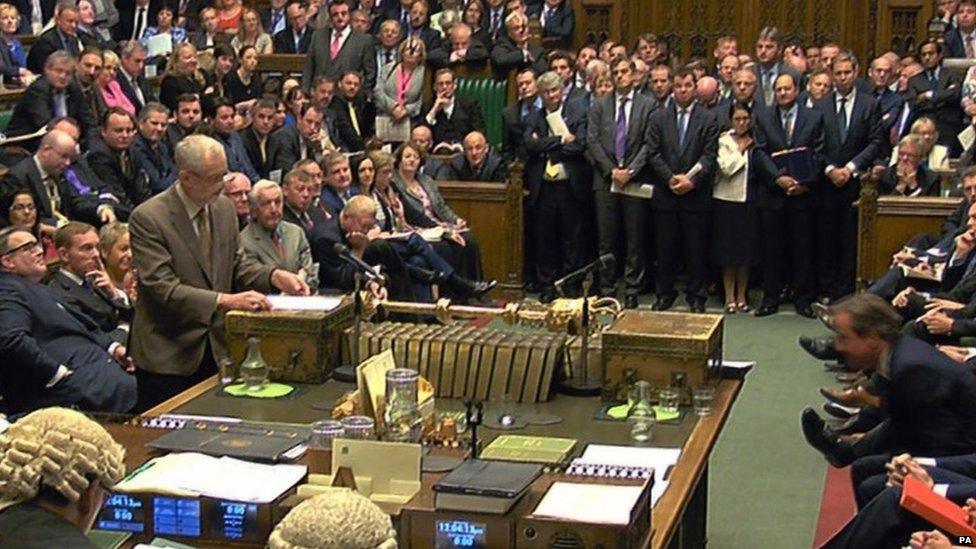
Mr Corbyn was praised for his handling of prime minister's questions
Unless Mr Corbyn defined himself and spelt out where he stood on key issues, such as the economy and Europe, others would do it for him and "he will never get off the ground".
"I didn't vote for him but he's there," he told Today. "I've have been a member of the Labour Party for 40 years and, like all of us, we will do our best.
"He is the leader but so far this week I am bound to say I just do not know where he is going, what he stands for.
"Frankly in the next couple of days he needs to set out with greater clarity what he exactly wants to achieve and how we are going to do it. He has not done that yet....
"If he really says he can really make a difference, he really does need to say how he is going make a difference. As an ordinary party member, I haven't seen that yet."
McDonnell apology
Mr Darling, who was chancellor between 2007 and 2010, stood down as an MP in May and has been nominated for a peerage.
Asked whether he could envisage Mr McDonnell - whose appointment has been questioned by some MPs - as chancellor, Mr Darling said "just at the moment it seems to me to be difficult but I am willing to be surprised".
He added: "I am sure all clouds have a silver lining but I haven't quite seen the silver lining here yet".
On Thursday, Mr McDonnell apologised for remarks he made in 2003 when he said that members of the IRA should be "honoured".
He told the BBC's Question Time that the comments had clearly caused offence and apologised "from the bottom of my heart", explaining that had been trying to give both sides of the conflict a way to lay down arms with "some form of dignity".
Tax stance
Mr Corbyn has sought to reassure Labour MPs about his views on Europe, having declined in the days after his election to rule out campaigning for the UK to leave the European Union.
He issued a joint statement with shadow foreign secretary Hilary Benn saying that Labour, under his leadership, would back the "In" campaign in a referendum due by the end of 2017.
Mr McDonnell has also indicated he would back a return of the 50p income tax rate - a policy that Ed Miliband advocated at the last election.
In the past, Mr McDonnell and Mr Corbyn have called for the top rate of tax to rise to 60p - a figure not seen since 1988 - but Mr McDonnell suggested he would settle for a more modest increase.
"It's an issue for us," he told Question Time.
"The Tories reduced it from 50p to 45p and we'd just like to go back to 50p. We think that's reasonable but that will be a debate within the Labour Party and we will come back with our concrete proposals on that."
- Published18 September 2015
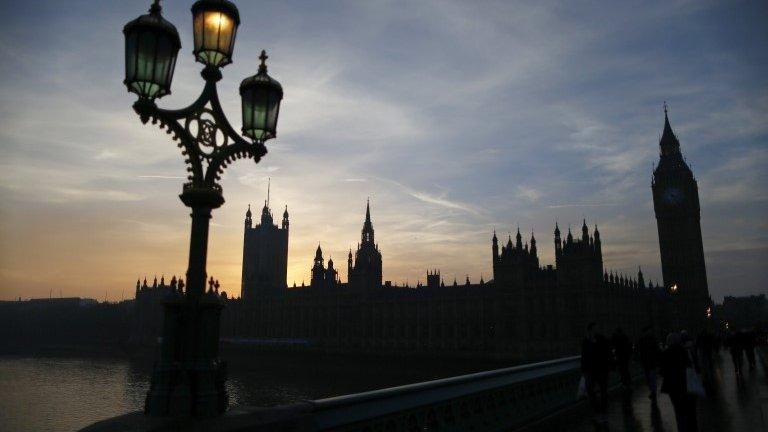
- Published18 September 2015
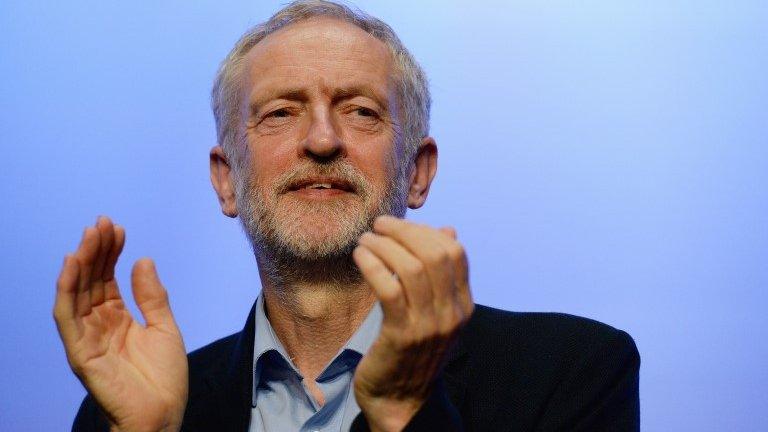
- Published17 September 2015
